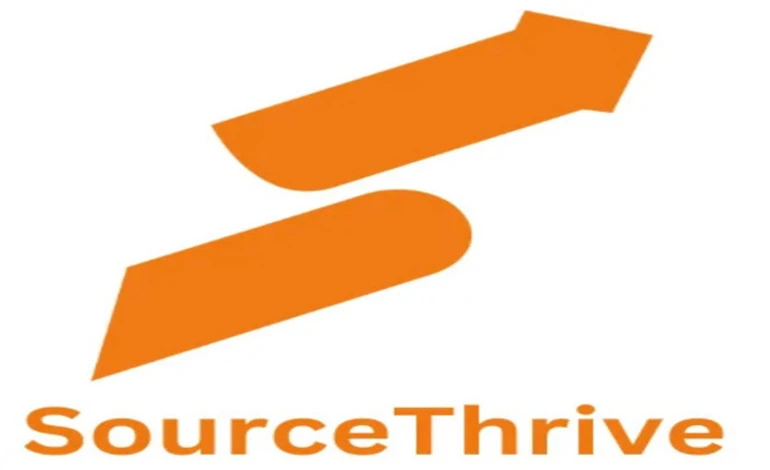In today’s competitive business environment, managing risk effectively is crucial. One of the primary tools companies use to mitigate financial risk is insurance. But before a business can secure coverage, it must submit or review an insurance proposal. This document serves as the foundation for any insurance agreement, and understanding its purpose and components can significantly impact your company’s financial health and long-term stability.
This article explores what an insurance proposal is, the types relevant to businesses, and why this document is critical to your company’s success. We will also discuss how to approach a request for proposal insurance process and the specific elements of commercial and health insurance proposals.
What Is an Insurance Proposal?
An insurance proposal is a formal document provided by an insurer or submitted by a business to an insurance company. It outlines the details of the insurance coverage being offered or requested. The proposal includes information such as the type of insurance, scope of coverage, premiums, deductibles, terms, and conditions.
In simpler terms, an insurance proposal is the roadmap that defines what is protected, for how much, and under what circumstances. It sets the stage for negotiations between the insurer and the insured and plays a key role in determining whether coverage will be granted, and on what terms.
Why an Insurance Proposal Matters
For businesses of any size, an insurance proposal is not just paperwork—it’s a tool for financial planning and risk mitigation. Here’s why it’s important:
- Informed Decision Making: A well-crafted insurance proposal enables business owners to make educated choices about their insurance needs.
- Clarity and Transparency: It sets expectations regarding coverage, helping to avoid misunderstandings or disputes later.
- Customized Coverage: Proposals allow businesses to tailor policies to their unique needs, industry, size, and risk profile.
- Legal Documentation: It serves as a record of the agreed-upon terms and can be used as a reference in case of claims or audits.
Key Components of an Insurance Proposal
A comprehensive insurance proposal usually includes the following elements:
- Policyholder Details: Name, address, and business type of the entity seeking coverage.
- Coverage Description: The type of insurance being proposed (e.g., liability, property, health).
- Scope of Coverage: Specific risks and losses covered.
- Exclusions: Situations or events that are not covered.
- Premium Costs: The total premium, payment terms, and frequency.
- Deductibles: The amount the policyholder must pay before insurance kicks in.
- Policy Duration: Start and end dates of the coverage.
- Underwriting Requirements: Information needed to assess the risk, such as financial records or operational data.
These elements provide a full picture of what the insurance agreement will entail, allowing both the insurer and the business to evaluate the proposal's adequacy and relevance.
Request for Proposal Insurance: A Strategic Approach
A request for proposal insurance (RFP) is a formal method businesses use to solicit bids from multiple insurers. Rather than going directly to one provider, companies can gather proposals from various carriers to compare pricing, coverage options, and service quality.
Here’s how businesses typically handle a request for proposal insurance process:
- Step 1: Define Your Needs
- Before initiating the process, outline what types of insurance your business needs—such as property, liability, health, or cyber insurance.
- Step 2: Prepare the RFP Document
- This document should include your business overview, current insurance coverage (if any), risk exposures, claims history, and desired coverage levels.
- Step 3: Distribute to Insurers or Brokers
- Send your RFP to a select group of insurers or licensed insurance brokers who specialize in your industry.
- Step 4: Evaluate Responses
- Compare submitted proposals on the basis of coverage, exclusions, pricing, service offerings, and reputation.
- Step 5: Select and Negotiate
- Choose the best fit and negotiate terms if necessary before finalizing the agreement.
Using an RFP for insurance helps businesses secure the most appropriate and competitive coverage available in the market.
Commercial Insurance Proposal: Protecting Business Assets
A commercial insurance proposal is tailored to the needs of businesses. It typically covers a range of policies, such as:
- General liability
- Property insurance
- Commercial auto
- Workers’ compensation
- Business interruption
- Cyber liability
These proposals are essential for companies that want to protect physical assets, employees, and business operations from unexpected events. A commercial insurance proposal must be detailed and industry-specific to address the unique risks that different sectors face.
For instance, a retail business might prioritize property and liability insurance, while a tech company may need strong cyber coverage. A good commercial insurance proposal will outline all these risks and offer customized solutions to mitigate them.
Health Insurance Proposal: Ensuring Employee Well-being
Employee benefits are a major consideration for businesses, especially in attracting and retaining top talent. A health insurance proposal outlines the health coverage options available to employees and often includes the following:
- Coverage types (medical, dental, vision)
- Premium structures (employer vs. employee contributions)
- Deductibles and co-pays
- Provider networks
- Wellness program options
- Compliance with laws (e.g., ACA in the U.S.)
Offering a comprehensive health insurance proposal not only benefits employees but also boosts morale, productivity, and loyalty. For small to mid-sized companies, group health plans can also offer tax benefits and cost savings compared to individual policies.
When evaluating a health insurance proposal, businesses should consider both the financial impact and the overall value it provides to employees.
Common Mistakes to Avoid in Insurance Proposals
While preparing or reviewing an insurance proposal, businesses often make several avoidable mistakes:
- Underestimating Risk Exposure: Incomplete or inaccurate information can lead to inadequate coverage.
- Overlooking Exclusions: It’s crucial to understand what’s not covered to avoid surprises during claims.
- Ignoring Comparative Analysis: Failing to compare multiple proposals can result in higher premiums or less favorable terms.
- Neglecting Policy Reviews: As your business evolves, your insurance needs may change. Regularly reviewing proposals ensures continued relevance.
Avoiding these mistakes can save your business money and protect it from significant financial losses.
Choosing the Right Insurance Partner
Whether you're submitting a request for proposal insurance or reviewing a commercial insurance proposal, it’s essential to work with a trusted provider. A good insurance partner will:
- Offer transparent and detailed proposals
- Be responsive to your questions and concerns
- Understand your industry-specific risks
- Provide post-policy support and claims management
SourceThrive emphasizes a collaborative approach when helping businesses navigate their insurance needs. With a focus on personalized service and clear documentation, they aim to simplify the insurance proposal process while ensuring robust protection.
Final Thoughts
An insurance proposal is more than just a formal document—it's a strategic tool that safeguards your business. Whether you're evaluating a commercial insurance proposal, preparing a health insurance proposal for employees, or managing a request for proposal insurance process, taking a thorough, informed approach is key.
Understanding the role of insurance proposals helps your business minimize risk, optimize coverage, and support long-term growth. As the insurance landscape evolves, staying proactive in your proposal management ensures you're always prepared for what’s next.
4o


